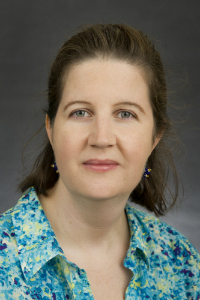
- Name: Caryn Evilia, Ph.D.
- Institution: Idaho State University
- Department: Chemistry and Biological Sciences
- Phone: 208-282-4006
- Email: carynevilia@isu.edu
Summary: My lab studies the structure and stability of proteins by exploring the biochemistry of the tRNA synthetases. These enzymes carry out a required cellular reaction- the attachment of the amino acid to its cognate tRNA. Without this ability, cells would die. Because of this essential function, tRNA synthetases are highly conserved in all organisms and therefore, would be an excellent target for control in pathogenic organisms. Extremophiles, organisms that live in extreme environments, have similarities to pathogens. They typically have to live in extremes in the host, in order to survive. My lab’s background on extremophiles, gives us insight into the extreme nature of how these pathogens have to live to survive, which includes how they make and structure their proteins to meet the demands of their extreme environment.
Minimum Classes: General chemistry, general biology, organic chemistry and general microbiology
Projects: Using protein alignments, we have found that a few tRNA synthetases in the pathogenic bacteria,Prevotella intermedia and Porphyromonas gingivalis, have similar features to the tRNA synthetases in Halobacterium salinarum, our model extremophile organism. Both P. intermediaand P. gingivalis are human pathogens that cause the diseases Noma and Cancrum Oris (a facial flesh eating disease). These diseases mostly afflict countries that do not have access to adequate dental and medical care. We have cloned and expressed the arginyl-tRNA synthetase and the cysteinyl-tRNA synthetase from P. intermedia into E. coli. The goals of our summer projects will be to further characterize these enzymes, using protein mutagensis, enzymology, gel shift assays, and CD/fluorescence spectroscopy. Our ultimate goal is to determine if their “extreme” features could be exploited for potential drug development.



